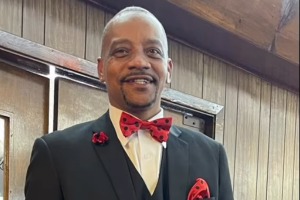Can We Know the Meaning of Life?

Can we ever really know the meaning of life? A new book dares to say "yes," and then shows us how.
The cover of a new book my good friend and apologist extraordinaire Greg Koukl makes a very bold claim. It promises to deliver "The Story of Reality: How the World Began, How It Ends, and Everything Important that Happens in Between."
And in only 200 pages, Koukl delivers, walking us through, in a new and fresh way, God's grand story of the universe. In essence, Koukl presents a succinct explanation of the biblical worldview, while contrasting it with other visions of reality, and along the way, making the case for the biblical worldview over and above the others.
Koukl, a bestselling author and founder of the "Stand to Reason" apologetics ministry, tells the story of reality through five simple but profound words — God, Man, Jesus, Cross, Resurrection. If you think you've heard this kind of thing before, trust me — you haven't. It's a simple, but not simplistic, apologetics tour de force for everyday people in postmodern America — and I mean people both in the pews, and out.
The need is great. As the Pew Research Center notes, the number of Americans who do not identify with any religion — those often called the "nones" — continues to grow. A third of adults under age 30 fall into this group. Just in the last five years, the ranks of those who claim no religion have grown from about 15% of U.S. adults to just under 20%. There are now more than 13 million self-identified atheists and agnostics, as well as nearly 33 million more who claim no particular religion. Many of them would say the Bible is a fairy tale.
Nancy Pearcey, co-author with Chuck Colson of one of the great worldview books of all time, "How Now Shall We Live?" begs to differ.
"The Bible is not a fairy tale crafted by ancient people to give a sense of meaning to life," she writes in the foreword to Koukl's book. "It is an account of reality. [Koukl] calls it a story only because, amazingly, it turns out that reality itself is structured like a great drama: It has a beginning and an end; it features a struggle between good and evil; it reaches a climax and then resolves into denouement and a finale." She adds, "The cosmos is not just a succession of brute facts. It is the plot line of a grand story that God is telling through the verifiable events of history."
One of the most powerful things that happens when people grasp this grand story is the realization they've been given a meaningful place in it. We're not cogs in a soulless cosmic machine but players in the divinely orchestrated drama, helping to move the story to its thrilling conclusion — whether as ministers, missionaries, carpenters, homemakers, or business people.
"Whatever you do, work at it with all your heart, as working for the Lord, not for human masters," the Scriptures say, "since you know that you will receive an inheritance from the Lord as a reward. It is the Lord Christ you are serving."
Unfortunately, there's too little of this kind of applied knowledge happening in our churches, which is why we need books like this one.
As pastor, author, and blogger Tim Challies says, "Koukl tells this big story for the benefit of new believers who haven't yet assembled the various components of the faith into a coherent whole."
And I would add, not a few of us long-time believers need to re-focus on the grand story as well.
Koukl is committed to training Christians to be ambassadors of this story, and to reach their not-yet Christian neighbors with the story of Christ's lordship and the redemption of the whole creation, including our souls. His thoughtful, irenic approach is greatly needed in a culture in which "post-truth" is the word of the year.
As Koukl writes, "There's a desperate need to equip followers of Jesus Christ to explain and defend Christian beliefs and values with people who don't understand our language and who don't accept our source of authority."
I can safely say Koukl's "The Story of Reality" meets that need — and then some. So please come to BreakPoint.org. Find out how you can get a copy for yourself, and one for a seeking friend while you're at it.



























